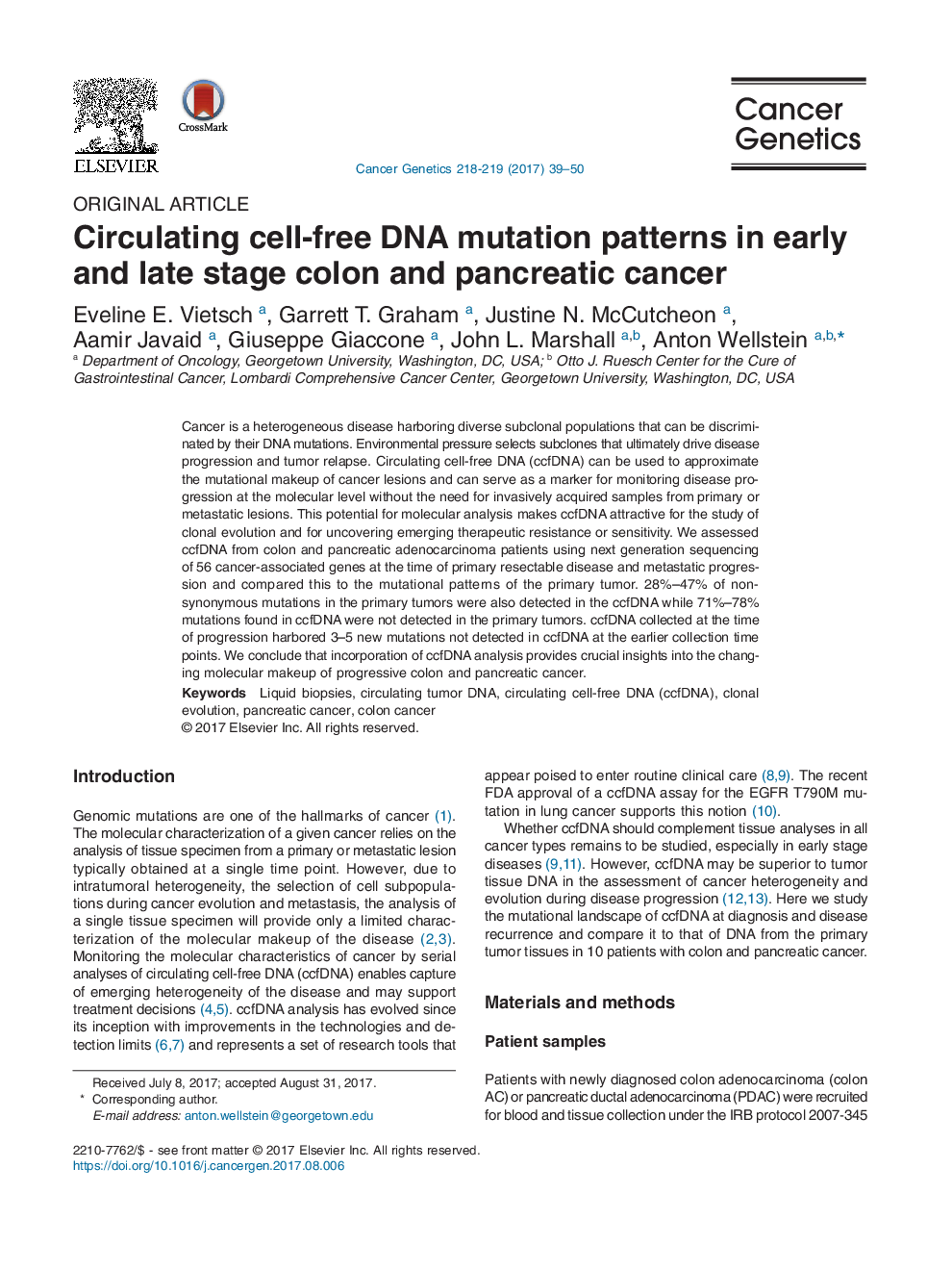| Article ID | Journal | Published Year | Pages | File Type |
|---|---|---|---|---|
| 5524939 | Cancer Genetics | 2017 | 12 Pages |
â¢Less than half of the mutations in tumor samples matched with circulating cell-free DNA (ccfDNA).â¢At the time of cancer progression an average of 3-5 new mutations were detected in ccfDNA.â¢CcfDNA represents the dynamics of tumor heterogeneity better than tumor DNA.
Cancer is a heterogeneous disease harboring diverse subclonal populations that can be discriminated by their DNA mutations. Environmental pressure selects subclones that ultimately drive disease progression and tumor relapse. Circulating cell-free DNA (ccfDNA) can be used to approximate the mutational makeup of cancer lesions and can serve as a marker for monitoring disease progression at the molecular level without the need for invasively acquired samples from primary or metastatic lesions. This potential for molecular analysis makes ccfDNA attractive for the study of clonal evolution and for uncovering emerging therapeutic resistance or sensitivity. We assessed ccfDNA from colon and pancreatic adenocarcinoma patients using next generation sequencing of 56 cancer-associated genes at the time of primary resectable disease and metastatic progression and compared this to the mutational patterns of the primary tumor. 28%-47% of non-synonymous mutations in the primary tumors were also detected in the ccfDNA while 71%-78% mutations found in ccfDNA were not detected in the primary tumors. ccfDNA collected at the time of progression harbored 3-5 new mutations not detected in ccfDNA at the earlier collection time points. We conclude that incorporation of ccfDNA analysis provides crucial insights into the changing molecular makeup of progressive colon and pancreatic cancer.
